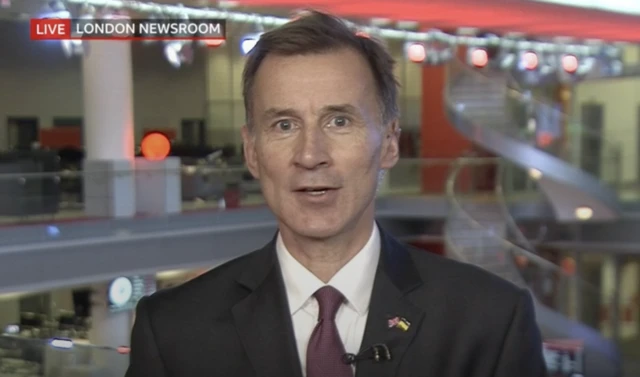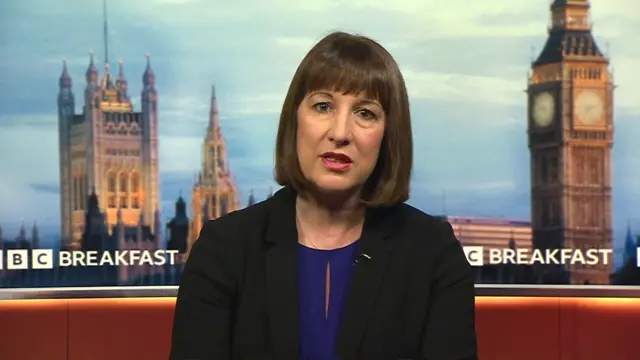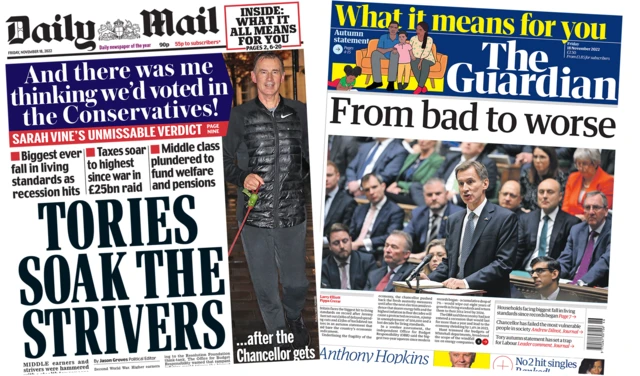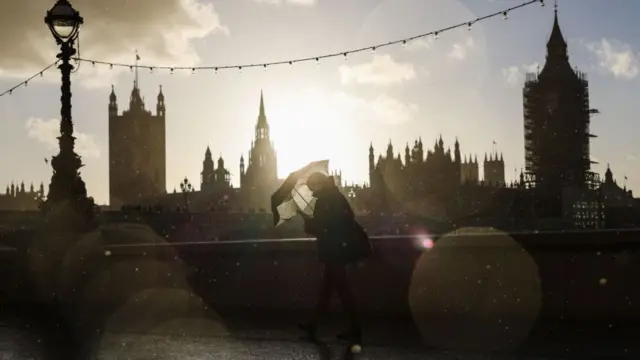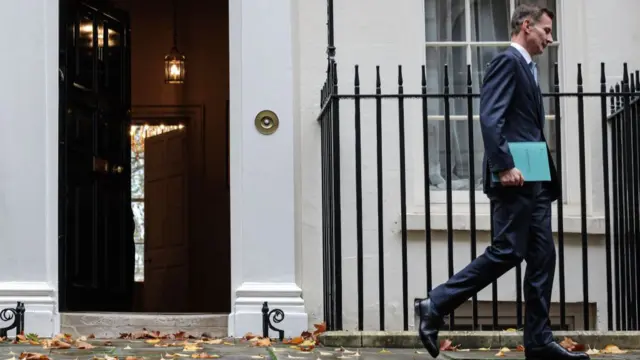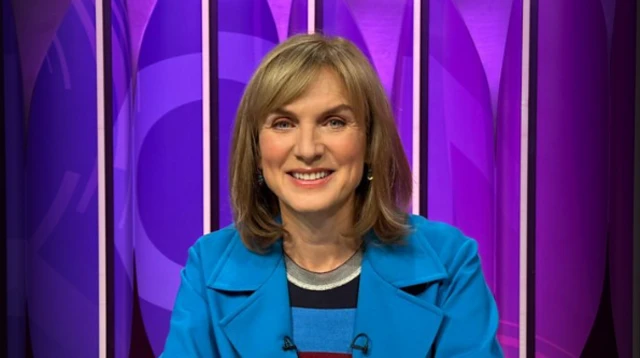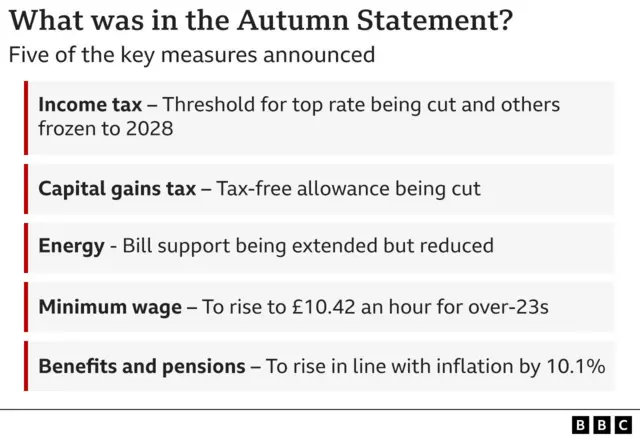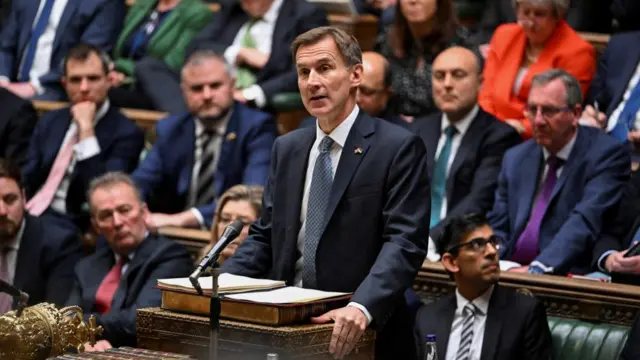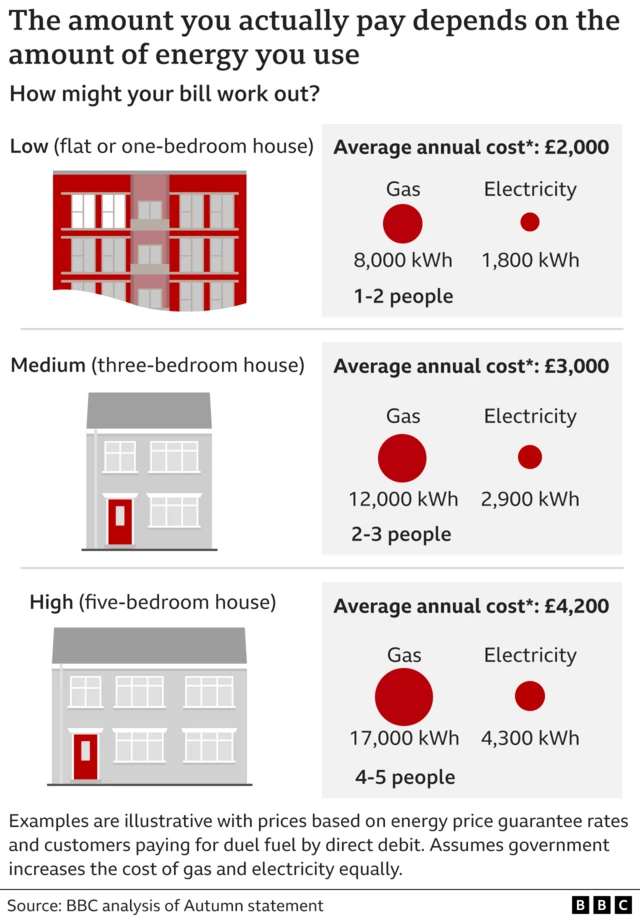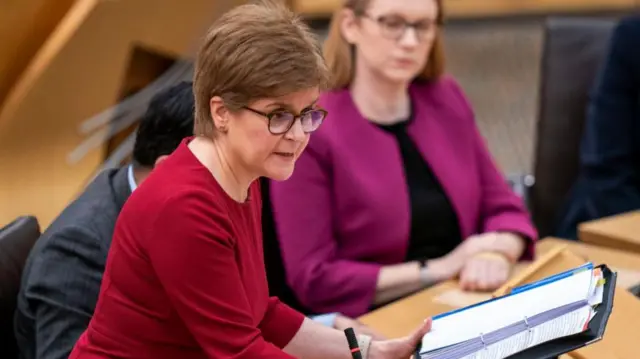Recent government borrowing 'coming home to roost' - IFSpublished at 08:03 GMT 18 November 2022
The chancellor's plans show the UK's government borrowing of recent years is "coming home to roost", says the director of the Institute for Fiscal Studies think tank.
"It all looks a bit grim," comments Paul Johnson, who highlights that the chancellor has accepted a continuation of borrowing - while also hiking taxes and planning spending squeezes after the next election.
Johnson tells BBC Radio 4's Today programme that this is due to the government's need to tackle debt - saying £100bn a year will be spent on debt interest in the medium-term.
Compounding matters is the fact that "there's just much less money around" with the economy growing so slowly, Johnson adds.
